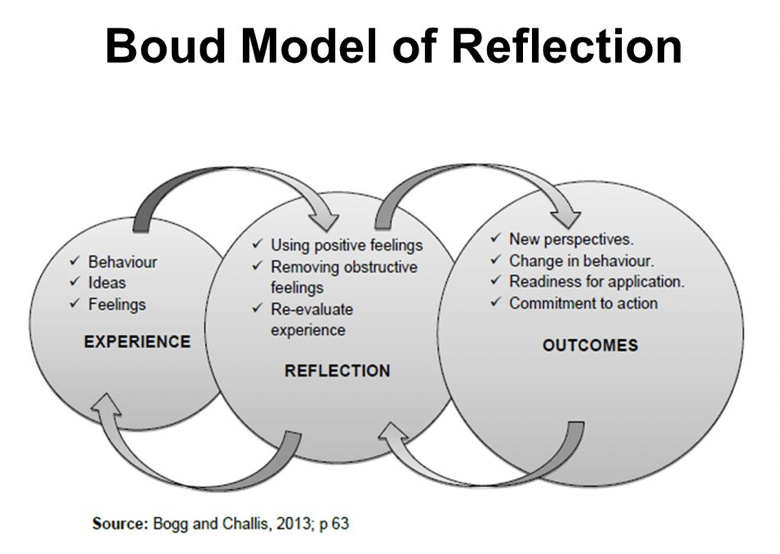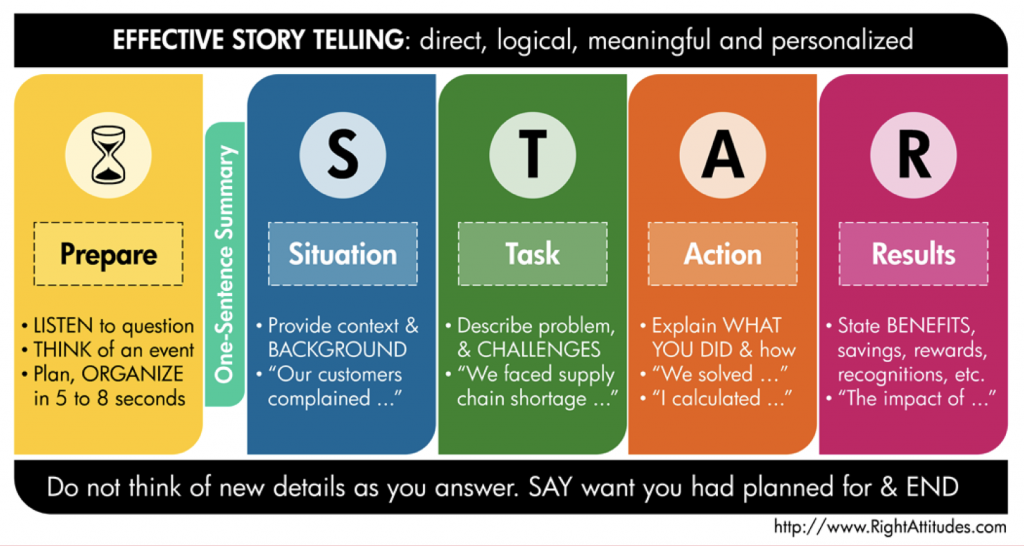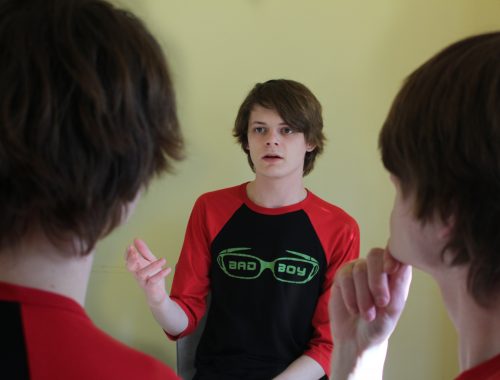Under the Microscope: Simulated Interview
“The moment we set eyes on someone, our minds make evaluations and judgements with lightning speed. The same is true for potential employers who must assess us.”
(Yate, 2008)
Since our week 1 class there has been one thing on my mind consistently… the dreaded simulated interviews; Something that is viewed as a simple task by many, and an opportunity to express why they are the perfect candidate for the role they have applied for, may in fact be one of my biggest fears. In order to ease my anxieties and succeed in the activity, I chose the job that I was to be a candidate for right away, the Head of Music Production for United Music Group, and began my preparation for possible questions that I might be asked by the interview panel. In this blog post I am going explore Boud’s Reflective model, to analyse the interview experience in order to gain insight into my performance which will help me in interview situations in the future.

“Boud et al.’s model very clearly identifies the different phases of the reflective process and the skills to be developed during each stage. Methods as to how these skills may be developed are also suggested.”
(Platzer, 1997)
Experience:
As mentioned before, I began my preparation for this interview almost right away after our first class, as I was already beginning to get nervous about the interview. Firstly, I started by researching the role that I had decided to interview for which included researching the company and their visions and ethics. I broke down the job description into sections of desired skills and qualities that a perfect candidate would have. After, I reflected on my own past experiences which highlighted how I possess many of the skills and qualities making me fitting for this job. One of the ways I did this was by drawing upon my involvement in commercial projects with my Belfast based placement employer, RedBox Studios. During one such project, I worked alongside the head of production (HOP) episode named ‘1981 In Story & Song’; this commemorated the 40th anniversary of the end of the 1981 hunger strikes. Over the course of this project, I was able to gain valuable first-hand knowledge of the head of production role and understand the relevant skills and qualities needed. In addition to this, I also practised answering potential questions using the STAR technique, which we learned about in week one and through further readings.
“You wouldn’t show up for a gig with your band without adequate rehearsal, so don’t shortchange yourself in an interview. Repeated rehearsal will allow you to be at your best.”
(Hatschek, 2014)
On the dreaded interview day itself I dressed myself smartly and made sure to arrive to the room on time. When it came to my turn to sit on the interview hot-seat, I sat upright and tried to use open and positive body language and maintain comfortable eye contact with the panel while answering the questions. These techniques helped me to try and disguise the fact that I was extremely nervous. I used the STAR technique for almost all questions and used anecdotes from my past experiences where applicable, while answering the questions honestly.

Reflection:
Looking back on the interview experience, I was able to draw up a list of strengths and weaknesses that I had shown through my answers to the panels’ questions. Overall, I had mostly positive feelings about the interview, and I was able to successfully deliver detailed answers to the questions put to me by the panel and managed to keep my nerves under control by sticking to my strategy of using the STAR technique. I believe I made a good impression on the panel as I managed to keep them interested through my personal anecdotes as talking about my past experiences in the field often prompted further questions about my previous work. The feedback form itself had a lot of helpful information about how I answered these questions such as how I was able to show that I possessed the required skills for the position, I understood the work environment in good detail, and I was able to use technical language when appropriate while showing knowledge of the creative aspect of the head of production position, as well as showing my passion for the business aspect and managerial role of the job. On the other hand, there was some minor negative feelings about my interview performance. During the interview I found myself fidgeting and had to use my hands while talking in order to keep them busy to avoid this. I also realised that I was looking around the room a lot when answering the questions and had to constantly redirect my eye to the person who had asked the question. I also feel like I could have condensed some of my answers to certain questions to give them more directness and clarity, this could also be paired with taking a deep breath before answering and talking slower.
“the person interviewing you does not expect you to have all the answers. What they are looking for is intelligence, a positive attitude, examples of your past experiences that are relevant”
(Hatschek, 2014)
Outcomes:
Overall, the simulated interview process and subsequent reflection on the task has allowed me to gain a renewed outlook/perspective on job interviews. This exercise and the feedback obtained from the mock panel has enabled me to identify my strengths in the interview scenario, while also highlighting areas for improvement. Another outcome of the process is that I now know what avenues of working life in the music industry that I need more relevant experience in, such as the marketing and financial aspects. To conclude, as I look into the future I will no longer see job interviews as the daunting experience that I thought it was, and I will be able to be more relaxed and confident which will in turn allow me to express to the panel why I am the perfect candidate to join their team.
Bibliography
- Hatschek, K. (2014). How to Get a Job in the Music Industry. Berklee Press.
- Platzer, H. (1997). Promoting Reflective Practitioners in Nursing: a review of theoretical models and research into the use of diaries and journals to facilitate reflection, Teaching in Higher Education. Taylor & Francis.
- Yate, M. (2008). Great Answers to Tough Interview Questions. Kogan Page Publishers.

Surprisingly Worthwhile
It Just Has to be Done
You May Also Like

Shocker, Tom also sucks at interviews!
18 February 2022
9 February 2022

